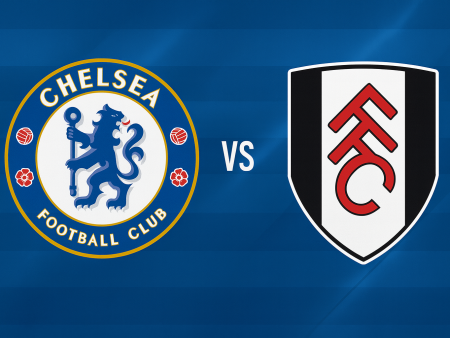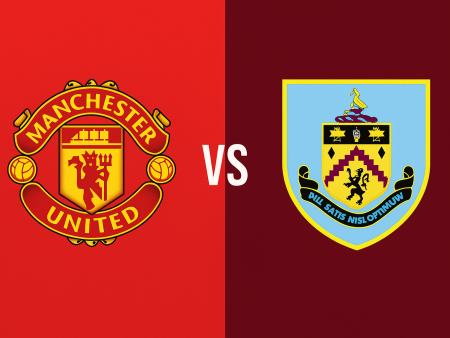Exploring Thomas Tuchel’s Next Managerial Move: Tactical Suitors and Best-Fit Destinations
In the dynamic world of football management, few names generate as much discussion around their next move as Thomas Tuchel. Following his surprising departure from Paris Saint-Germain, Tuchel’s reputation as a tactical innovator, honed across successful spells at Mainz 05, Borussia Dortmund, and PSG, makes him a prime candidate for a host of top-tier clubs and even national teams. This analysis examines key clubs that could benefit from Tuchel’s distinct philosophy and managerial approach, evaluating where his methods might be most effectively implemented.
Why Thomas Tuchel’s Managerial Style Appeals to Top Clubs
Thomas Tuchel is renowned for his adaptable systems, tactical acumen, and strong leadership. His ability to shape teams with proactive pressing, effective build-up play, and dynamic attacking structures has delivered success and recognition across Europe. Clubs or federations seeking a manager who can instill a clear footballing identity and maximize squad potential should consider Tuchel’s profile. Here, we identify four leading destinations that could be a strong match for his next challenge.
Chelsea FC: A Tactical Evolution at Stamford Bridge
Chelsea’s managerial carousel turned once again with the dismissal of Frank Lampard, opening a pathway for a fresh approach at Stamford Bridge. Tuchel’s high-octane football and tactical flexibility align closely with Chelsea’s traditional strengths: pace, power, and technical ability.
Key reasons why Tuchel represents an excellent fit for Chelsea:
- The squad features numerous versatile and attack-minded players, including Timo Werner and Kai Havertz, both of whom flourished under similar systems in Germany.
- Tuchel’s preferred formations (4-2-2-2, 4-3-3, or 3-4-3) offer tactical options that suit Chelsea’s roster. For instance, a 4-2-2-2 system could partner Werner with a more physical center-forward, while Havertz operates as a hybrid winger-playmaker.
- Chelsea’s fullbacks, Reece James and Ben Chilwell, can provide attacking width, complementing Tuchel’s emphasis on progressive flank play.
- Quality in central midfield-with N’Golo Kante, Mateo Kovacic, Mason Mount, and emerging talents like Billy Gilmour-supports the quick transitions and pressing style central to Tuchel’s philosophy.
Additionally, Tuchel’s proven record in developing young players suggests continuity with the club’s recent focus on youth integration, while his prior relationship with Christian Pulisic could reinvigorate the winger’s contribution.
Potential areas of improvement at Chelsea under Tuchel:
- Enhancing team pressing and defensive organization from the front.
- Unlocking the attacking potential of recent signings struggling for form.
- Maximizing ball-playing defenders and building structured attacks from the back.
Chelsea’s ambitious environment and high-caliber squad make it a logical, mutually beneficial step for both club and manager.
Borussia Dortmund: A Return to Familiar Grounds
A return to Borussia Dortmund, although less probable due to past boardroom differences, would present Tuchel with a familiar setting and a receptive fanbase. Dortmund’s playing principles-attacking football, high energy, and youth development-mirror Tuchel’s strengths.
What makes Dortmund a compelling option:
- The squad features tactically versatile players like Raphael Guerreiro, Julian Brandt, and Emre Can, all capable of thriving under Tuchel’s flexible systems.
- The club’s tradition of using fullbacks as auxiliary attackers fits Tuchel’s preferred attacking width and dynamic transitions.
- Dortmund’s core group includes several players who excelled during Tuchel’s previous tenure, such as Marco Reus and Mats Hummels.
- Tuchel’s expertise in refining pressing structures and fluid attacking patterns offers the club a chance to challenge domestically and in Europe.
Possible challenges include reconciling past issues with Dortmund’s management, as well as ensuring the alignment of squad size and star power with Tuchel’s current ambitions. Nevertheless, Dortmund remains a setting where Tuchel’s tactical blueprint is both understood and respected.
FC Barcelona: A Cultural and Tactical Challenge
Barcelona’s need for renovation places them in the conversation for high-profile managers. However, Tuchel’s counter-pressing, transition-focused methods contrast with the club's historical reliance on possession and positional play.
Reasons Barcelona could consider Tuchel:
- The club is entering a transitional phase, with experienced players like Messi, Busquets, and Pique nearing the end of their peak years.
- Incorporating Tuchel would symbolize a strategic shift and a willingness to evolve the playing style, potentially attracting new talent to facilitate this reform.
- Certain players, such as Ousmane Dembele-who flourished under Tuchel at Dortmund-could benefit from his approach.
- Tactical flexibility may help Barcelona reduce reliance on established patterns and adapt to a changing La Liga landscape.
Points of caution:
- Many in the current squad are accustomed to the Barcelona ‘way’ and may require extensive adaptation for Tuchel’s methods.
- The need for squad overhaul could be even greater under Tuchel than under a manager with deeper roots in the club’s traditions.
- Implementing high press and rapid transitions demands fitness and tactical discipline, potentially sidelining some homegrown youngsters.
While not an obvious fit, Tuchel’s appointment at Barcelona would provide both a tactical experiment and a statement of intent.
Germany National Team: A Potential Evolution for Die Mannschaft
With Joachim Löw’s tenure as Germany’s national manager approaching its conclusion, speculation around the next head coach has intensified. Tuchel, noted for his development of German players and experience in elite environments, is a credible candidate to succeed Löw if other options, such as Hansi Flick, remain committed to club football.
Tuchel’s profile suits the national set-up in several ways:
- Experience with core members of Germany’s squad, including Mats Hummels, Ilkay Gundogan, and Thilo Kehrer.
- Strong emphasis on pressing and proactive football, echoing Die Mannschaft’s identity in recent tournaments.
- Ability to rejuvenate the squad using established Bundesliga talents and mold emerging players through modern tactical frameworks.
- Capacity to reintegrate former key contributors and mentor the next generation of German stars.
While national team appointments differ from club football in tempo and continuity, Tuchel’s skill set would support Germany’s pursuit of continued international success.
Conclusion: Choosing the Right Setting for Thomas Tuchel’s Next Chapter
Thomas Tuchel stands out as a top contender for any ambitious club or national federation aiming to implement modern, dynamic football. Among the possibilities explored, Chelsea appears especially well-matched to his tactical profile and could offer the infrastructure and resources to maximize his impact. Borussia Dortmund also offers a meaningful, albeit emotionally complex, opportunity, while Barcelona and the German national team would pose intriguing tactical and cultural tests.
As world football continues to evolve, managers like Tuchel-who blend strategic thinking with player development-remain in high demand. Clubs and teams ready for change should view Tuchel as a transformational candidate poised to redefine their trajectory.
Further Reading
- Why Thomas Tuchel is the Perfect Fit for Chelsea - Tactical Analysis
- Thomas Tuchel - Paris Saint-Germain - Tactical Analysis
- Thomas Tuchel’s Principles of Play - Tactical Analysis













